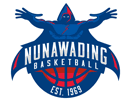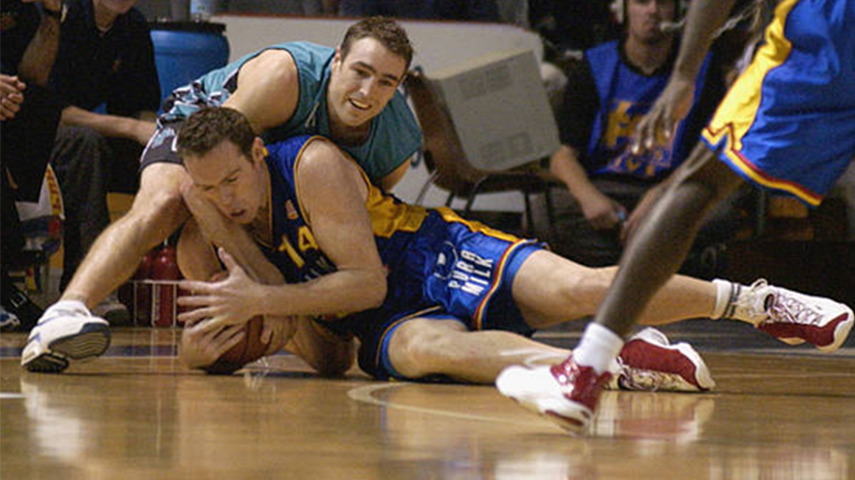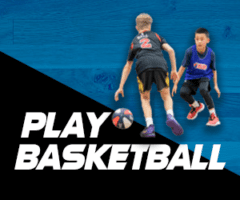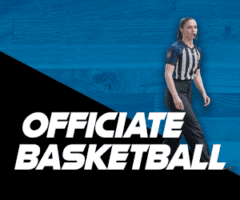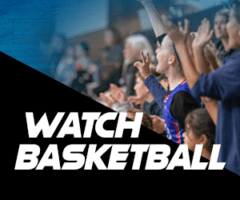When I hear the name Rupert Sapwell two memories instantly shoot to the forefront of my mind – his uncanny ability to bank the ‘45 Three’ and the day he dropped 50 points for the Spectres in a CBA game back in ‘94. I had a front row seat that day as one of the floor wipers and I had never seen a performance like it – at least not firsthand.
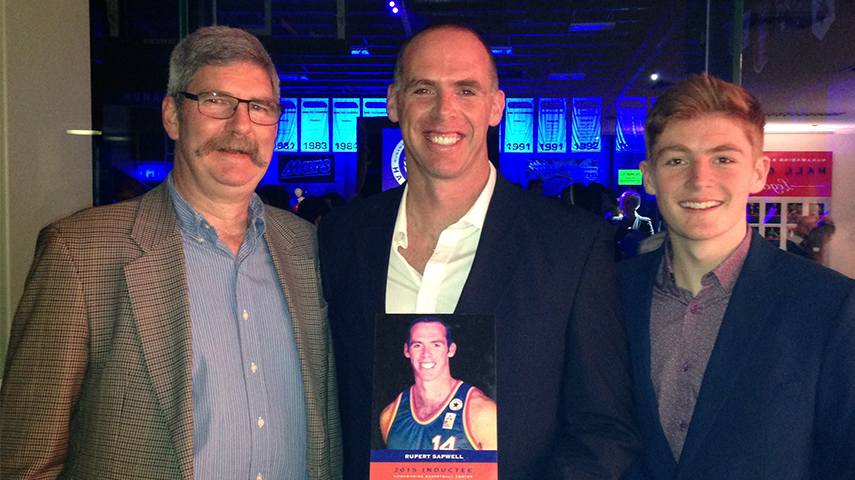
A 13-year NBL veteran with the Eastside Spectres (1989-1990), South East Melbourne Magic (1994-1995), Geelong Supercats (1996), Adelaide 36ers (1997-2002) and Cairns Taipans (2003-2004), Sapwell has played for some of the league most decorated coaches – an incredible foundation for his own coaching career.
On the sidelines, Sapwell led the Norwood Flames to back-to-back championships in the South Australian Premier League – now NBL1 Central in 2008 and 2009, a period he also doubled as an Assistant Coach with the Adelaide 36ers.
In 2011, Sapwell became Director of Sport, Head Basketball Coach at Trinity College, Gawler (SA) – a role he has thrived in and continues to do so today, whilst remaining actively involved in Basketball SA’s NITP and State Development Programs.
Inducted into the Nunawading Basketball Hall of Fame in 2015, I recently reached out to Sapwell, asking if he would be willing to contribute to The Coaches Network, which he so generously accepted. Thank you!
-Paul Flynn, Nunawading Basketball Operations Manager
JOIN THE COACHES NETWORK FACEBOOK GROUP ONLINE NOW
THE F-WORD
Rupert Sapwell
Back in 2006 I was being interviewed for an NBL head coaching job. I was in the room with one of the owners, and I thought I was putting a pretty compelling case forward. Having enjoyed three NBL championships as a player in my 360 game career, and having learnt from coaches such as Brian Goorjian, Mike Dunlap, Ian Stacker, Phil Smyth and Guy Molloy, I was sure I had a lot of answers to the ‘what does a successful program look like’ question.
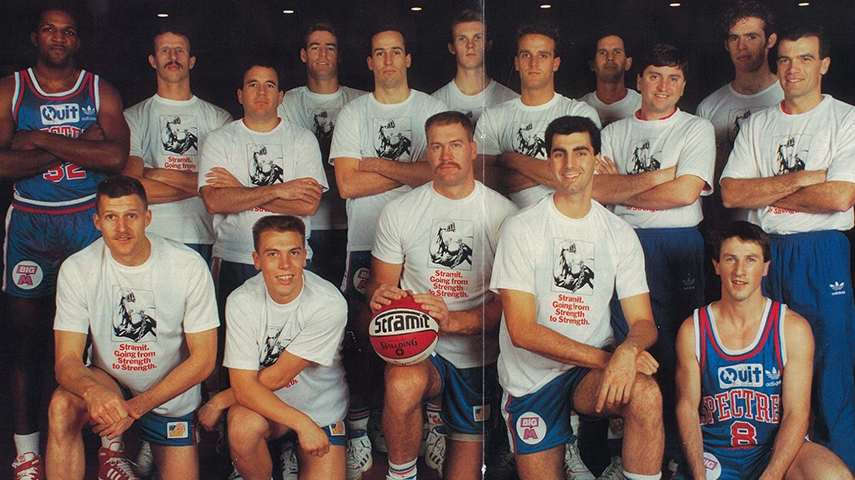
But about halfway through the interview, I dropped an ‘F-Word’ that stopped the interview in its tracks. The owner asked me what I thought the key ingredient to winning was…
I said FUN.
I remember seeing the colour drain from his face, and he stopped the interview on the spot. Fun, he assumed, had no place in professional sports. It was serious business.
I left the interview a little perplexed and embarrassed, but no less certain of my theories. The team sacked their new coach a few games into a disastrous season, and I went back and coached a team that won the next two South Australian Premier League titles (with no imports).
Fast forward to 2020, and fun is at the forefront of many of the world’s elite teams. Golden State Coach Steve Kerr says fun (joy) is a cornerstone of the team’s philosophy. Pete Carroll, head coach of the NFL’s Seattle Seahawks, is all about positive energy and Richmond Football Club Coach Damien Hardwick has his team in hysterics just before the 2019 grand final.
These master coaches understand that making the workplace a fun place to be creates the optimum high-performance environment. They are building connections between people and creating memories that will last forever.
Next time you have the opportunity to ask a retired player what’s the one thing they miss most, 90 percent of them will tell you they miss the interaction with their teammates.
Fun assumes a number of identities in a basketball team, and where people often get the wrong idea is that they think it is about jokes and tomfoolery. There’s some of that, but it’s also a lot about chasing mastery, sharing a challenge, reaching milestones and collaborating to achieve something you can’t achieve by yourself.
Dive a little deeper into the psychology behind it, and you start uncovering theories like psychological safety, vulnerability and motivation theory.
Without geeking out too much on science, I can comfortably say to any coach, that if you build great relationships with your players, and create a challenging, safe environment, your players will love it, and keep coming back.
Fun can be contextually based as well.

Throughout my career there were different things that made it fun for me. Early on, it was learning to be a pro at the South East Melbourne Magic with fellow Spectres juniors Tony Ronaldson, Jason Smith, Shane Bright and Leigh Wadeson. Then it was expanding my role and facing bigger challenges at the Geelong Supercats. In six years with the Adelaide 36ERS we won three championships and things were purring. The locker room was a scream. Finally, in my last two years at the Cairns Taipans, I relished the challenge of helping take the bottom-placed team to their first-ever finals win. It was fun all the way through, but the reasons for the fun were different. Each player you coach will also find fun in different ways – it’s up to you to know that.
In my role as Director of Sport at Trinity College in South Australia, apart from teaching Shakespeare to year 10 students, I’m in charge of creating a co-curricular program for nearly 4000 kids that makes them fall in love with sport, and more importantly, life-long physical fitness. So I’ve been researching for years to come up with something that kids love, and stay with. When things go wrong, I hear about it. I fail when a child leaves sport, and the number one reason is that ‘it’s not fun anymore’.
As a result, we have shifted our coaching philosophy at the College. Games-based learning should be something you’re taking a serious interest in. Australian researchers like Shane Pill here in Adelaide are leading the way in this regard. Basically, people learn better in games where the practice closely resembles the competition. We all know players love to play, but many of us give them a game for five minutes at the end as a reward to enduring all the other rubbish we subject them to. Find a way to play more and your players will have FUN.
American researcher Amanda Visek did some research on what kids found fun about team sport. Interestingly, she found that winning was waaaay down the list.
Think about that for a minute.
Ask yourselves some questions . . .
Why do our players play the game?
Do we really know what our players think is fun?
When was the last time we asked them?
Because adults like winning, are we forcing that on the kids?
What do we REALLY want for our kids from their involvement in sport?
If I can encourage you to get anything out of this article, it’s to SLOW DOWN and actually think about what type of humans we want to create from their involvement in our teams.
Easy for me to say, I’ve done lots of winning, and my basketball ego is intact. It’s not attached to what my children or players achieve on the court. As a coach and teacher, however, my professional pride is more concerned with what I can teach them THROUGH basketball, and not just ABOUT basketball.
One final story about fun:
In 2018 Trinity College won the National Schools title. We were the only school in the Championship Division that didn’t offer sports scholarships, run a basketball-specific curriculum or both. What we did have, was an incredibly tight team who loved the game, loved each other and loved their school. We were able to practice a LOT, however, because the players loved coming to practice. We scrimmaged all practice, made it competitive and the players loved to compete. Fun CAN lead to excellent results!
So how do I make it fun for players?
Here are some practical tips:
- Get to know your players. Talk to them before or after practice, greet them with a smile and a high five. Show them that you care about them.
- Create a safe place. Encourage learning from mistakes. Give them a voice. Give them ownership. What things can you give them to decide on. There are LOTS.
- Value everyone’s contribution. Catch them doing something right. Validate them and their role.
- Challenge them every day. Always set tasks that are not too hard or easy, but achievable some of the time. (The Goldilocks Rule)
- No lines, laps or lectures. Put them in game situations as often as possible. There isn’t a skill worth learning that can’t be done in a competitive situation. The closed skill reps like shooting for form and dribbling for beginners can be done at home because they love the game and want to get better at it. You created their love for the game.
There are some theorists who fear grassroots sport participant numbers will be decimated once we return from COVID-19. We will have to work really hard to get them back and keep them in the sport. Make it fun. Make your team environment such that they can’t wait to get back.
